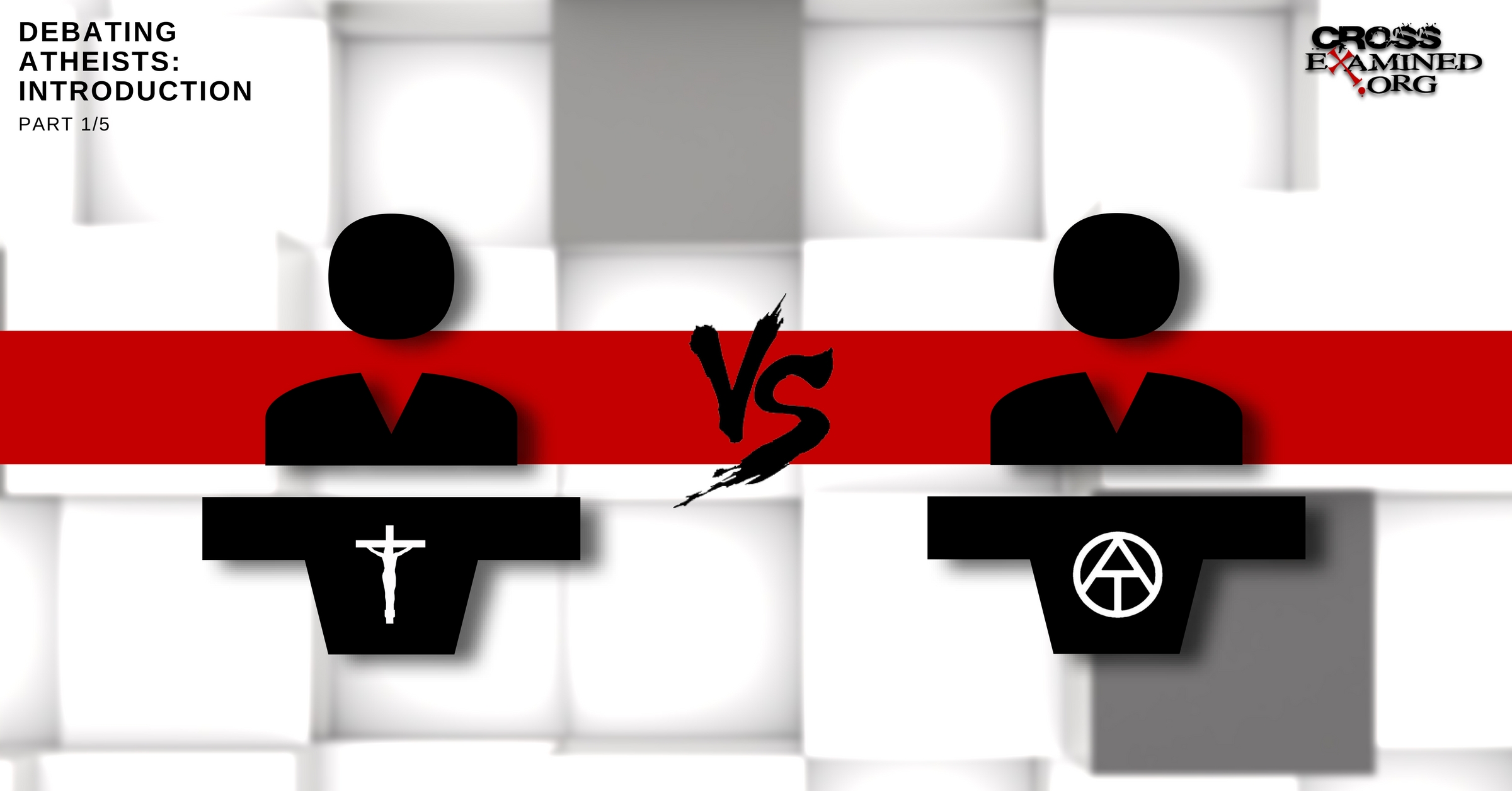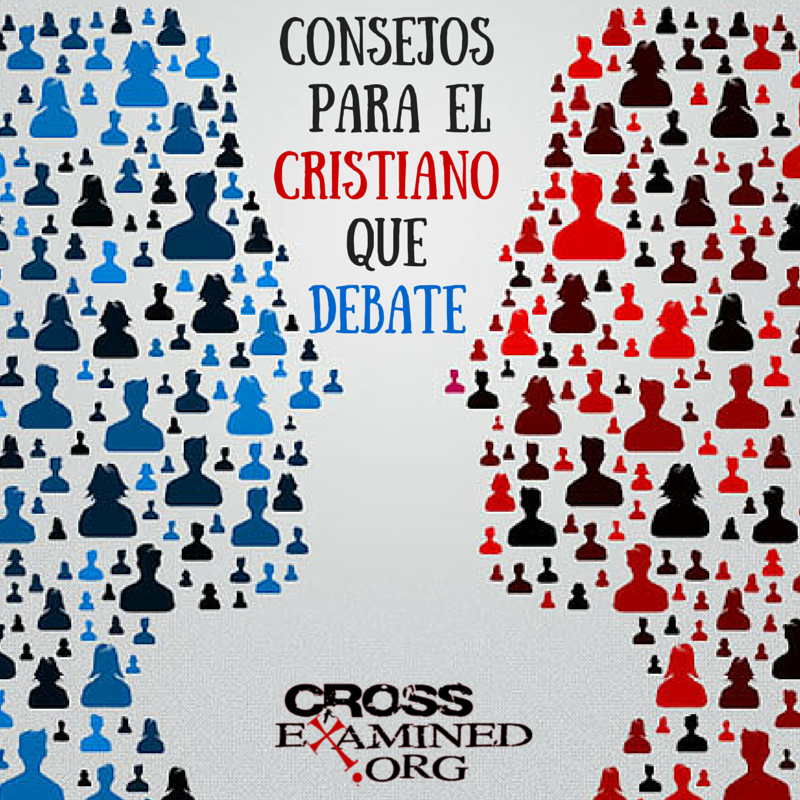By Dan Grossenbach
In the previous post of this short blog series found here, I explained how four facts agreed upon by the majority of non-Christian experts can be used to build a strong case for Christianity. This is the approach I took when I debated Freethought Arizona spokesperson Dr. Gil Shapiro in November 2016. In this week’s post, I’ll cover the first one.
#1 The Arrival of the Universe
Either the universe is infinitely old or it started at a finite time ago at a certain point in time. There’s no third option unless we deny the existence of the universe altogether as some new age or eastern beliefs do. The cosmos has been the focus of study as long as man has existed and some mysteries remain yet unsolved. Nevertheless, that the universe had a beginning is something we can say with relative certainty.
- About 13.8 bya the universe came into existence where energy, matter, natural laws, time, and space arrived on the scene prior to which they were not there.ASU astrophysicist and religion critic Paul Davies says “the universe can’t have existed forever. We know there must be an absolute beginning a finite time ago.”[1]
Alexander Vilenkin, another skeptic of religion goes further arguing for a finite starting point even with the possibility of multiple universes when he said this in 2003:
“It is said that an argument is what convinces a reasonable man, but a proof even an unreasonable man. With the proof now in place, cosmologists can no longer hide behind the possibility of a past-eternal universe. There is no escape: they must face the problem of a cosmic beginning.” The problem for Vilenkin and his non-Christian peers is what follows from a “beginning.”[2]
In defense of this idea, outspoken religion skeptic and Arizona State University physicist Lawrence Krause said, “If you asked me what I would bet, I would bet that our universe had a beginning.”[3] To see why scientists like Davies, Krause, and other skeptics consider the beginning of the universe a problem, it’s important to see what follows from another fact we already know.
- In uniform and repeated human experience, everything that begins to exist has a cause
Sensing the pending consequences of these two facts, Dr. Krause tries to show how events can occur from “nothing.” The trouble is, he defines nothing as something. You can see Krause first properly defines “nothing” as the “absence of anything” but in the very next breath tells us his “nothing” of the pre-beginning initial conditions of the universe contained something, namely, lots of complex “stuff” and “particles” interacting with each other.[4] Dr. Krause is a brilliant man and must know better. For the stuff and particles he just listed by default entails space, time, energy, matter, and abstract objects like physical laws and logic which is all that’s needed to make up our entire physical universe. These things are not only not “nothing” (no-thing) but are the very things scientists tell us did NOT exist until they came into being at the beginning of the universe, a beginning Dr. Krause would put his money on. In fact, the universe itself is comprised of the same things he attributes to as “nothing.” So for Krause: nothing = universe.
If these first two points hold true, as nearly all experts agree, and the logic is sound, the following conclusion is inescapable.
- The universe had a cause.
This opens a whole other can of worms. Who or what is the cause? Well, we can infer a few things from this argument. The cause must be supernatural, uncaused, spaceless, immaterial, timeless, personal, powerful, rational, and independent. This list of attributes rules out nearly every world religion except monotheism.
Uncaused – Gen 1:1, Ps 102:25-27, Jn 1:3, 1 Cor 8:6, Col 1:16, Heb 1:2
Spaceless – 1 Kings 8:27, Isa 66:1-2, Acts 7:48
Immaterial – 1 Kings 8:27, Isa 66:1-2, Acts 7:48
Timeless – Ps 90:2, Job 36:26, Rev 1:8, Jn 8:58
Personal – Gen 17:1, Rev 19:6, Ps 33:9, Rom 4:17
Powerful – Gen 18:14, Jer 32:17, Job 42:1-2, Mt 19:26, Mk 14:26
Rational – 1 Cor 14:33, Isa 1:18, 2 Tim 2:13, Lk 10:27
Independent – Gen 1:1, Ps 102:25-27, Jn 1:3, 1 Cor 8:6, Col 1:16, Heb 1:2
We’re not able to show the God of Christianity on this first argument alone, but there’s no better candidate than theism to fit the bill. At the very least, the God of biblical Christianity matches this description without a single miss and is among a very short list of contenders. It’s important to note none of the rival atheistic theories fit these attributes for the universe’s initial cause. But before critiquing any rival options, I waited for Dr. Shapiro to present another cause that better explains the creation of the universe. He never did. And the options offered by the atheists mentioned here start off on false or unfounded assumptions. Atheists might not like the Christian explanation, but they seem to support the basis for it and fail to offer a better way. So the Biblical account of the arrival of the universe remains the best explanation available to us.
Original Blog Source: http://bit.ly/2xeVSkM
Endnotes:
[1] Paul Davies, “The Big Bang-and Before,” lecture at Thomas Aquinas College March 2002 quoted from ReasonableFaith.org.
[2] Alexander Vilenkin, Many Worlds in One p176, quoted from Common Sense Atheism blog post “Craig on Vilenkin on Cosmic Origins” by Luke Muehlhauser
[3] Lawrence Krause, debate with William Lane Craig in Brisbane, Australia on August 7, 2013 transcript here
[4] Lawrence Krause, debate with William Lane Craig, 2013, video here starting at around 17:00




